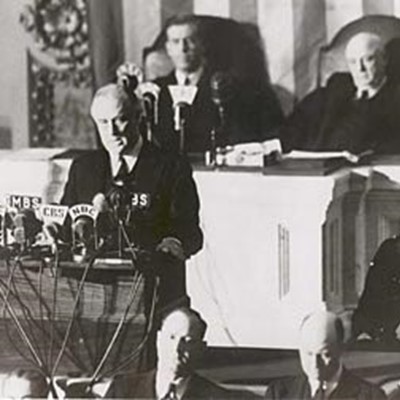
Panel discussions are a popular way to present information. We’ve learned a lot over the years as we’ve helped organizations make theirs better. In this series, we’re providing tips for planners, moderators, and panelists—to help you make sure the panel discussions you play a role in will live up to their potential.
"Superficially, a panel looks easy. There are four or five other people on it – all of whom you think you’re smarter than – and it only lasts sixty minutes. How hard could it be? Herein lies the problem."
– Guy Kawasaki in "How to Kick Butt on a Panel"
There’s no shortage of tips for participants in panel discussions. With all that advice out there, we have to wonder: Why do so many panelists come up short?
After working with panelists to help them prep, here’s what we’ve learned:
- Panelists don’t understand the format—and how it’s different from giving a speech
- Panelists believe “discussion” is a synonym for “no prep required”
- Panelists forget who the real audience is (or should be)
- Panelists wait for someone else to tell them/show them/guide them in what to do
Let’s take a look at each of those—and what you can do as a panelist to avoid the common pitfalls.
1. Panelists don’t understand the format.
"Understand" means a couple of things here. First, some panelists don’t understand how panel discussions are fundamentally different from presentations. That’s how you end up with a series of presentations instead of a discussion.
If you’re a panelist, go prepared to discuss. That means you’ll respond to questions, challenge other panelists when you disagree, look for ways to expand on statements you do agree with, and even ask questions of other panelists to get more information.
The second meaning of "understand the format" relates to how the specific panel discussion is set up. Ask for a briefing with the moderator or organizer—at the least by email, better by phone.
Don’t be shy about asking questions if the format isn’t clear. Look for clarification on:
- Who will introduce you—or if you’re expected to introduce yourself. If someone else is introducing you, provide them with a brief bio to use, one that helps the audience understand why you have something to add to the discussion. Whether you’re introducing yourself or leaving it to someone else, do not detail every step of your career or education. Stick to the essentials: Think in terms of a three-sentence intro.
- Whether panelists are expected to present something before the discussion begins. We prefer that panelists not be asked to present—but some panels are formatted this way. You’ll want to know how long you’re expected to speak, what others are addressing (so you won’t repeat them), and if PowerPoint is required. Then, create a concise and interesting message, one that comes in under the time limit.
- If the audience will also be asking questions. Many panel discussions include audience interaction, and this will change how you prepare.
- Stage set up and any technology that’s being used. Will you sit at a table or on a couch? Will the panel discussion be broadcast? Will viewers of that broadcast also interact with the panel? These details will help you prep and make sure you feel comfortable when you show up for the event.
2. Panelists believe no prep is required.
Because they’re responding to a moderator, some panelists think there’s nothing much they can (or should) do to get ready. Don’t be that panelist.
Some ways you can prepare include:
- Getting a full briefing from the moderator (see above), including topic, questions planned for discussion, and who might be in the audience.
- Researching fellow panelists and moderator, to understand more about their points of view and expertise.
- Brushing up on talking points and key facts you want to contribute to the discussion.
- Brainstorming questions you might get from the audience and prepping to handle any tough questions that could come your way.
- Identifying any topics you want to avoid or minimize, with a plan for how you’ll deal and move on if those topics come up.
- Identifying your whys and hows. Why are you participating in this panel? Why do you have something to add to the conversation? How can the audience benefit from information you have? How will you make that information relatable to them?
- Role playing with a colleague. If you’re new to panel discussions or concerned about tough questions, get some practice in with a role play.

3. Panelists forget who their real audience should be.
It’s easy to fall into the trap of talking to the moderator or to your fellow panelists—but the audience you should be trying to reach is the one out there in the room.
To keep the real audience in mind, try to:
- Direct your answers to the audience, not to the moderator.
- Avoid jargon or institutional language—and go with words and terms the audience will understand.
- Use stories and examples to explain unfamiliar ideas.
- Pay attention to the other panelists and moderator when they’re talking because a) you should be adding to that discussion not accidentally repeating it and b) the audience can see you when you’re drifting off or checking your phone.
- Be respectful of audience members, even if they ask bad questions. For example, no one likes the panelist who responds to a statement with "Is there a question in there?" You don’t do your message, your cause, or yourself any favors when you are dismissive of an audience member or their ideas.
4. Panelists wait for someone else to tell them what to do.
You don’t want to be overbearing, to dominate the conversation and come off as being besotted with yourself. But you don’t want to be passive either.
Don’t expect that the moderator will always know the best question to ask. Don’t give up your chance to add to the conversation.
At every stage, from prep to panel day, respectfully assert yourself. Here are some ways to do that:
- Bring a different point of view if you have one. If you feel reluctant, come up with phrases in advance that can help you get there: "Another way to think about it is…" or "I’ve got a little different take…"
- Steer the moderator or the discussion to a more interesting point: "Yes, some people are focused on x but I’m looking at y because…"
- Suggest a different question: "The question people are asking me is …"
- If you agree with what’s being said, either add some information or just say you don’t have anything to add. Don’t bog down the discussion by repeating.
Being a panelist can be a great opportunity to share what you know, position yourself and your expertise, and even learn a few new things—so it’s worth doing well.
You can pick up a lot by watching panel discussions with a critical eye: Ask yourself what’s working and why.
You’ll also find a few more tips in this article we like, from the perspective of frequent moderator and panelist Guy Kawasaki.






